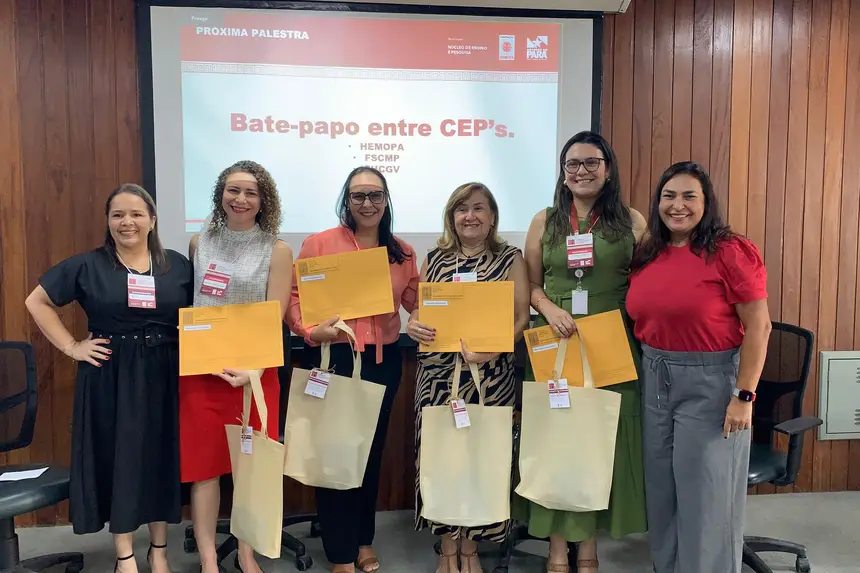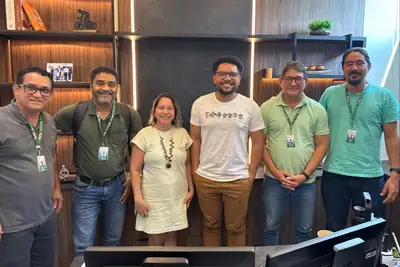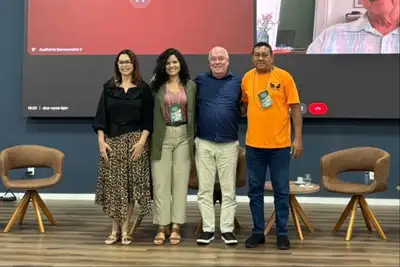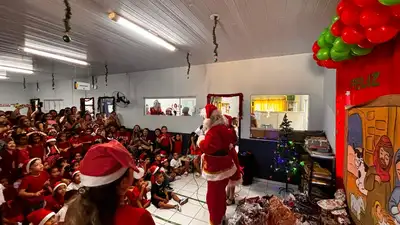Hemopa marks scientific advancement with 1st Symposium on Ethics and Bioethics in the Amazon
Event brought together specialists, health professionals, and students in Belém to discuss challenges and advancements in scientific research in the region
The Pará Center for Hemotherapy and Hematology Foundation (Hemopa), through the Teaching and Research Center (Nepes), held this Wednesday (27), at its headquarters in the Batista Campos neighborhood in Belém, the 1st Symposium on Ethics and Bioethics Applied to Health Research in the Amazon. The meeting brought together representatives from research ethics committees, faculty, health professionals, students, and managers from different institutions, strengthening the debate on the ethical challenges of scientific production in the region.
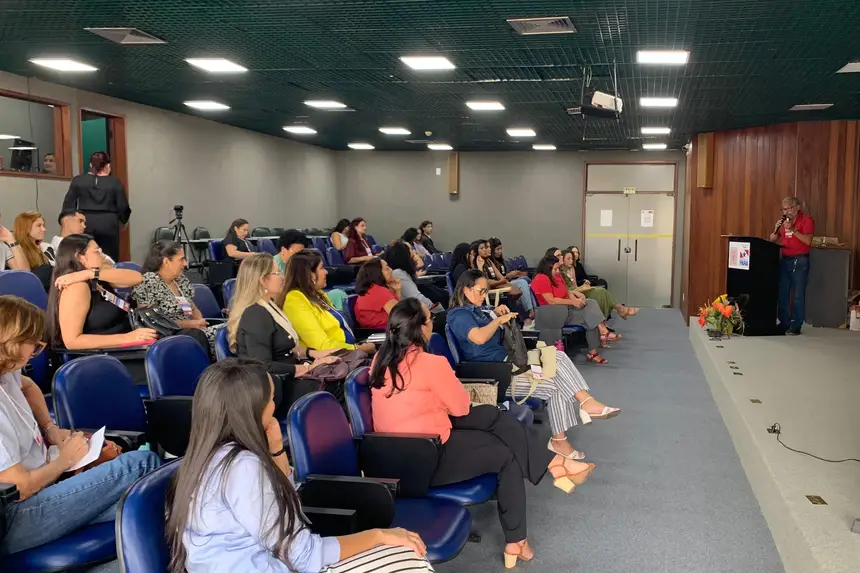
Upon arrival, participants were welcomed to the sound of carimbó and participated in the official opening, which featured a performance by the Sons da Vida Choir from the Hemopa Foundation, in a moment of reception.
The realization of the symposium marks an important step for the Hemopa Foundation, which, in 2025, achieved official accreditation of its Research Ethics Committee (CEP). The committee is responsible for evaluating research projects involving human beings, ensuring compliance with ethical and legal standards. Its creation strengthens the institution's autonomy, ensures greater rigor in analyses, and contributes to scientific advancement in health, focusing on hematology and hemotherapy.
According to the project developed by Nepes, the event was justified by the social, cultural, and environmental specificities of the Amazon, which directly impact the conduct of research. Issues such as free and informed consent of traditional populations, social justice in the distribution of research benefits, respect for local worldviews, and protection of biodiversity were highlighted as central points to strengthen scientific integrity and the social relevance of studies.
The symposium's program included panels on the new Law 14.874, which brings new challenges for ethics committees, as well as discussions on research with indigenous, quilombola, and riverside populations, ethics in public health, and analysis of multicenter projects. A roundtable discussion was also held on the experience of research participant representatives (RPPS), who highlighted the role of social control in scientific investigations.
The technical director of Hemopa, Dr. Larissa Francês, emphasized that the realization of the symposium symbolizes a new moment for the institution. “We are very happy with the realization of this first symposium. Recently we had the creation of the CEP, which we had been aiming for some time. This meeting shows the need to have a committee related to the service we perform, with all its peculiarities. It is an opportunity to broaden the perspective not only on health but also on research aimed at the population, considering cultural aspects of communities such as quilombolas and indigenous peoples. This symposium came to add, and God willing, we will have more editions in the coming years,” she stated.
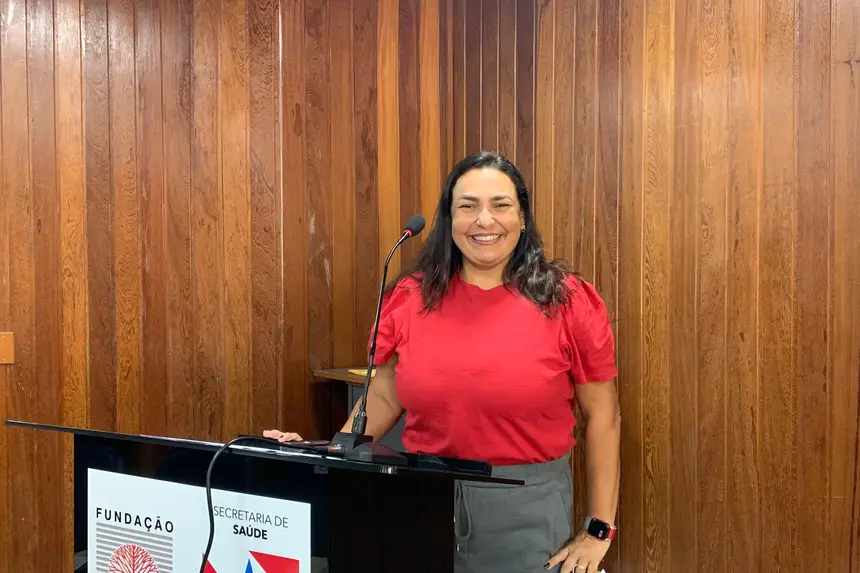
The biomedical from Nepes and deputy coordinator of the CEP/Hemopa, Núbia Carolini Costa de Almeida, reinforced the relevance of the event as an initial milestone for the committee's work. “This is the first event promoted by Nepes in partnership with the CEP in the first six months of our Ethics Committee's implementation. The goal is to generate discussions on ethics in research, new legislation, research with vulnerable groups, and promote the exchange of experiences with more established CEPs, contributing to the development of teaching and research at Hemopa,” she explained.
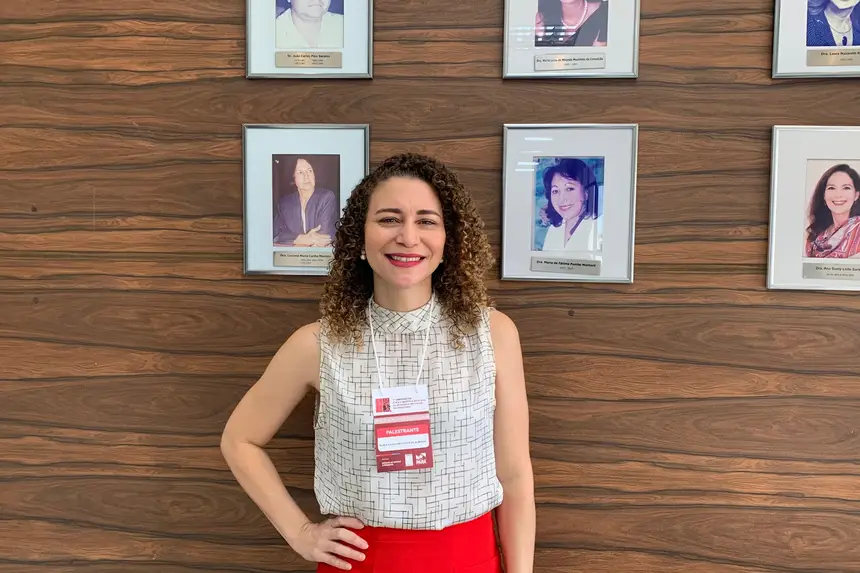
The pedagogue and manager of Nepes, Eidy Ferreira, highlighted the formative nature of the symposium. “The symposium is a milestone for the Teaching and Research Center because it represents the materialization of a collective effort aimed at strengthening the ethical culture within the Hemopa Foundation. More than a scientific event, it is a space for training, knowledge exchange, and valuing the diversity that characterizes our Amazon region. We believe that initiatives like this contribute not only to improving research practices but also to raising awareness among researchers and students about the social and human commitment involved in knowledge production,” she stated.
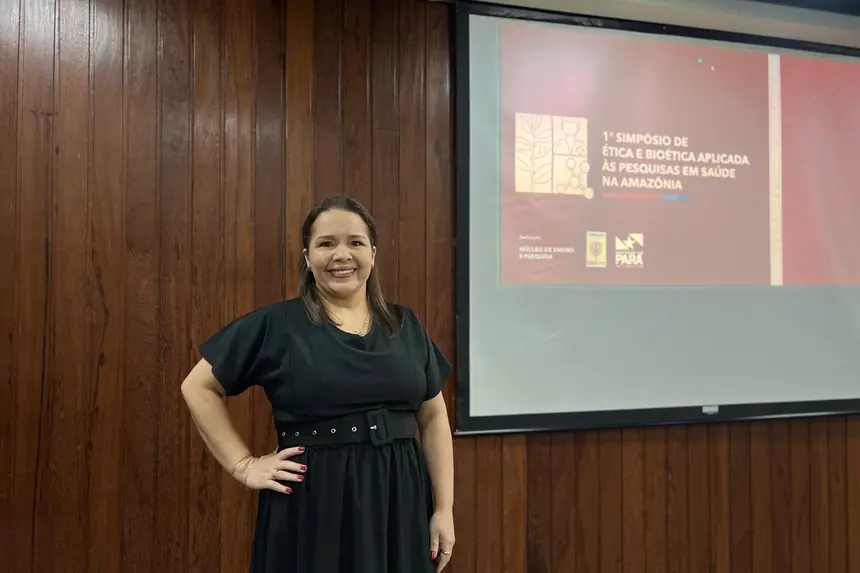
Participant and Biomedicine student from Fibra, Ana Carolina, emphasized the impact of the symposium on academic training. “The lectures reinforced the importance of being aware within research, in the delivery of articles and in the construction of projects. It is essential to understand what can and cannot be done, always with respect for others. I really liked the talk about the absence of philosophy in schools and how it affects the education of children and adolescents. Events like this broaden our perspective on the relevance of CEPs and ethics in health. I hope we have more meetings like this,” she said.
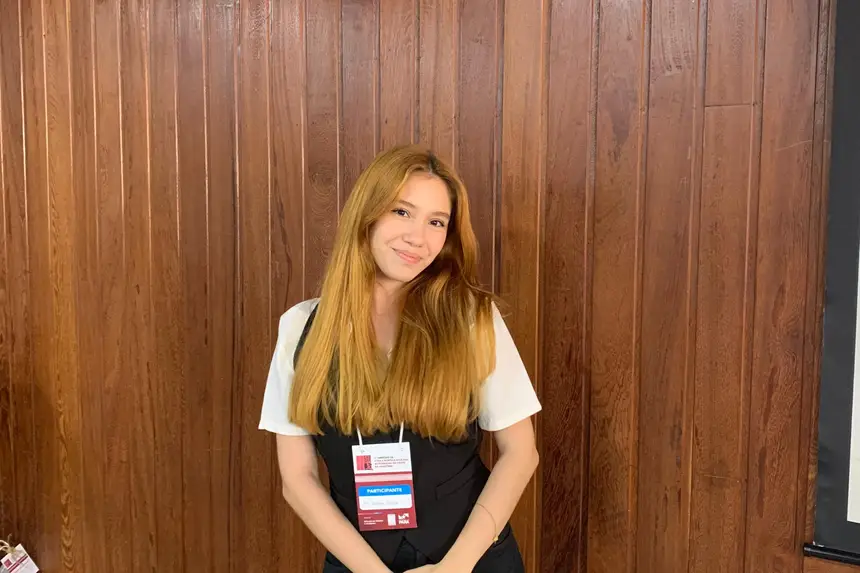
According to Nepes, the symposium aimed to discuss challenges related to free and informed consent, debate issues of equity in access to research benefits, promote intercultural dialogue, and present ethical dilemmas experienced in the Amazon. The target audience included researchers, health professionals, managers, undergraduate and graduate students, as well as representatives from traditional communities and regulatory bodies.
The expectation is that the symposium will become part of the scientific calendar of the Hemopa Foundation, strengthening cooperation between research centers and expanding the institutional commitment to ethical, responsible, and culturally sensitive practices.
